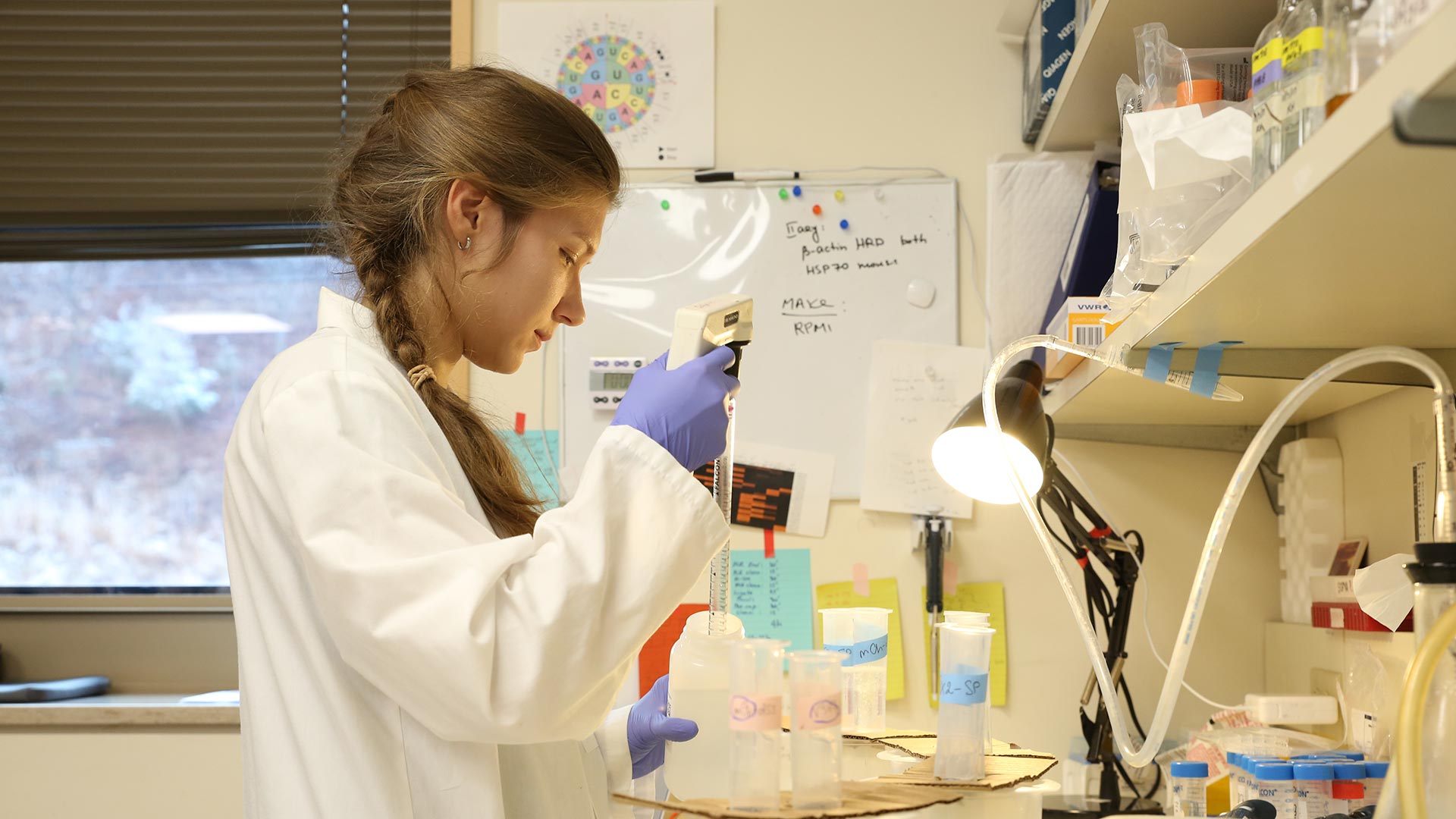Acute myeloid leukemia (AML) is an aggressive cancer of white blood cells with few effective targeted therapies available to treat it. Cold Spring Harbor Laboratory (CSHL) Professor Christopher Vakoc and former graduate student Sofya Polyanskaya found that AML cells rely on a previously little-known protein called SCP4 for survival. Their discovery points to a potential new therapeutic approach for this disease.
SCP4 is a phosphatase, a type of protein that regulates cell activity by taking phosphates off other proteins. Another type of protein called a kinase puts those phosphates back on. The number of phosphates added to or subtracted from a protein—its phosphorylation level—determines its activity. Polyanskaya discovered that SCP4 could pair with either one of two similar kinases called STK35 and PDIK1L. AML cells appear to need the phosphatase and kinases to work together to survive; turning off the gene that produces SCP4 kills the cancer cells.
Polyanskaya was surprised to find only 12 papers in the scientific literature that even mention SCP4. Of those papers, none discussed a role for these proteins in cancer. She says:
“When you encounter something that was never previously studied in the context of cancer or hasn’t been understood at all, it’s very interesting.”
The researchers think SCP4 may control an important metabolic pathway on which AML cells depend. Drugs directed against SCP4 could starve and kill the cancer cells while allowing other healthy blood cells to grow. Fortunately, other phosphatases have been successfully targeted by drugs before.
Polyanskaya admits that deciding to study SCP4 was risky. But now that its important role in AML cells has been discovered, Polyanskaya says, “Other researchers can use this system and tweak some other things to really try and pinpoint the exact pathway. This work underscores the importance of fundamental research for discovering future therapies.”
Written by: Jasmine Lee, Content Developer/Communicator | publicaffairs@cshl.edu | 516-367-8845
Funding
National Cancer Institute, Pershing Square Sohn Cancer Research Alliance, National Institutes of Health, Leukemia & Lymphoma Society
Citation
Polyanskaya, S.A., et al., “ The SCP4-STK35/PDIK1L complex is a dual phospho-catalytic signaling dependency in acute myeloid leukemia”, Cell Reports, January 11, 2021. DOI: 10.1016/j.celrep.2021.110233
Principal Investigator

Chris Vakoc
Professor
Alan and Edith Seligson Professor of Cancer Research
Cancer Center Deputy Director of Research
M.D., Ph.D., University of Pennsylvania, 2007
